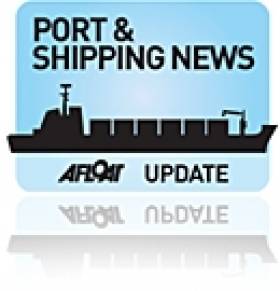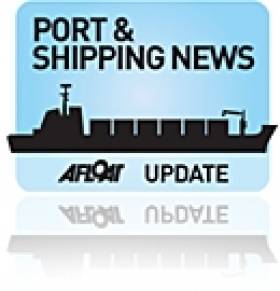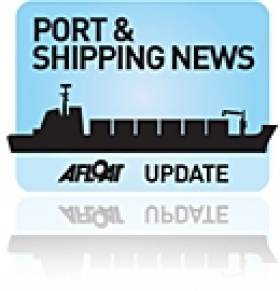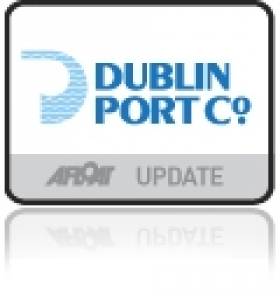Displaying items by tag: European Sea Ports Organisation
EU Parliament Rejects Controversial Ship-Recycling Levy
#ShipRecycling – The European Parliament has today rejected proposals to introduce a levy on all ships calling at EU ports that would finance a fund to support sustainable recycling of ships.
The proposal had been introduced earlier by Parliament's Committee on Environment, Public Health and Food Safety (ENVI).
Instead, MEPs approved an amendment which calls upon the European Commission to submit by 2015 a legislative proposal for an incentive-based system that would facilitate safe and sound ship recycling.
"We welcome the outcome of the vote", said European Sea Ports Organisation (ESPO) Secretary General Patrick Verhoeven, "We understand the need to create an incentive for shipowners to opt for sustainable recycling, but the side-effects of the levy on the competitiveness of EU ports would have been very negative in terms of traffic evasion, changed ship calling patterns and modal back shift, not to mention the bureaucracy involved with it.
By referring the task to create an incentive-based system to the Commission, there will be time to work out an adequate framework which would match the aim of creating sustainable conditions for ship recycling with respect for international rules and the competitiveness of European ports."
The vote by the EU Parliament is not a final one, it gave a mandate to open negotiations with Council in order to come to an agreement in first reading.
Ports Urge European Leaders Not to Cut Transport Infrastructure Budget
#EUROPORTS – European Heads of State and Government are coming together this week, in another attempt to make a deal on the Multi-Annual Financial Framework (MFF), the overall European budget for the years 2014-2020 and the budgets to be allocated to the different policies.
European sea and inland ports are urging European leaders not to touch the envelope of €31.7 billion foreseen for Europe's transport infrastructure investments under the Connecting Europe Facility (CEF).
Last spring, the European Federation of Inland Ports (EFIP) and European Sea Ports Organisation (ESPO) took the lead in a campaign set up by 28 European transport organisations to secure the TEN-T budget. Both organisations also encouraged their members to sign the declaration that was initiated by Commission Vice-President Siim Kallas at the end of last year.
EFIP Director Isabelle Ryckbost points out: "The proposed TEN-T budget is aimed at financing a concrete transport infrastructure plan, that will benefit all transport modes, Member States and regions.
The €31.7 billion will not only serve transport as such. By optimising transport links and transport nodes, all other policies, not in the least Europe's cohesion and agriculture policy will benefit. In that sense, the TEN-T budget has a real spill over effect and can be considered as one of the best ways of spending European money. It would be a shame if European leaders were to cut this budget and plan."
ESPO Secretary General Patrick Verhoeven confirms: "We hope European leaders will realise that a 3% share of the overall budget is a bare minimum for a sector that directly employs 10 million people and counts for about 5% of GDP.
This is certainly the case for ports. Ports are real job creators and engines for regional development. Moreover, as the main gateways to the world, seaports are essential to ensuring Europe's economic growth."
EU Ports Framework Policy Conference in Brussels
#PORTS NEWS – A major two-day ports conference organised by the European Commission, started today in Brussels, where 400 delegates representing different stakeholders within the port sector are attending.
The aim of the conference is to analyse the current EU policy framework for ports, which is laid down in a communication of the Commission that was published in 2007. The outcome of the review is not decided yet, with options ranging between doing nothing, guidance on application of Treaty rules and full-blown legislation.
"We firmly believe that the European Union has the potential to be a positive force in establishing a renaissance of port management and policy", said European Sea Ports Organisation (ESPO) Chairman Victor Schoenmakers in his statement at the conference. "This can be done by, on the one hand, ensuring a level playing field and legal certainty, and, on the other hand, fostering growth and development of ports."
Raising the specific challenges of port authorities, Mr Schoenmakers highlighted access to port land as a principal point of attention. "The most important asset that port authorities have is land. The way we give access to that land to operators is therefore essential. Whether we do this through public domain concessions or private land lease contracts is irrelevant.
"What matters is the ability to balance transparency and flexibility when using these instruments. Having clear, but also proportional guidance on the application of relevant Treaty rules is for us therefore an essential element of a common ports policy, next to guidance on State aid and guidance on the freedom to provide services."
The ports policy conference will be followed by a further consultation on the options at hand and an impact assessment. The outcome of the process is expected for spring next year.
Varadkar to Open Dublin Port Conference
Dr. Leo Varadkar, T.D., Minister for Transport, Tourism and Sport will open a major conference on the future development of Dublin Port at 9 am tomorrow at The Gibson Hotel, Dublin (beside the Point Village). Among the issues to be addressed at the conference will include: economic; infrastructure; planning; transport; tourism; and environmental considerations.
Speakers and panellists on the day will include: Danny McCoy, Director General, IBEC; Jim Power, Economist; Dr. Don Thornhill, Chairman, National Competitiveness Council; Gina Quin, CEO, Dublin Chamber; Michael Stubbs; Dublin City Assistant Manager; John Whelan, CEO, Irish Exporters Association; Eamonn McKeon, CEO, Irish Tourism Industry Confederation; Peter Nash, Tourism Ireland; Nigel O'Neill, Head of Strategic Planning, NRA; Stephen Ahearne, General Manager – Freight, Irish Rail; Tom Wilson of the Freight Transport Association; Marian Wilson; Head of Transport Planning, National Transport Authority; Patrick Verhoeven, Secretary General, European Sea Ports Organisation; Brendan McDonough, Manager of Strategic Planning and EU, IDA Ireland; Eamonn O'Reilly, CEO, Dublin Port Company; and Lucy McCaffrey, Chairperson, Dublin Port Company.
The conference is part of Dublin Port Company's consultation on the future development of Dublin Port, which will need to handle 60 million tonnes - double today's throughput – by 2040. The key question to be addressed is how Dublin Port Company can achieve this taking into consideration the Port's role and responsibilities across trade, tourism, transport and the natural and built environments.
Dublin Port Company is seeking submissions on the development of a Masterplan by 31st May, 2011.



























































